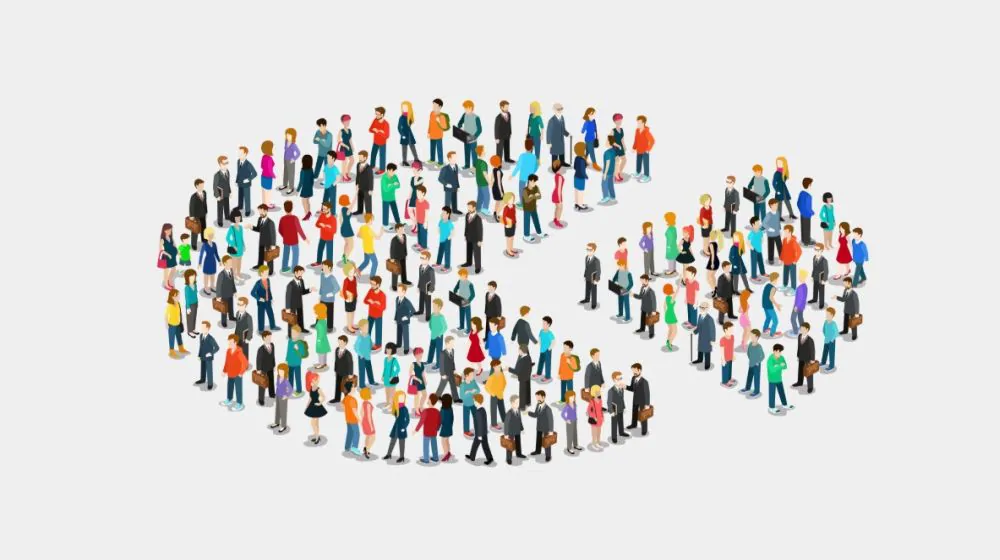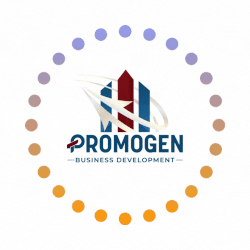
7 Types of Account-Based Intelligence that PromoGen offers
The term 'Account-based intelligence' was coined to describe any information or data that could be used to investigate or influence a specific account.
Ever wonder how account-based intelligence is used for marketing purposes?
Account-based intelligence (ABI) is the incorporation of account intelligence within your marketing initiatives. For example, rather than marketing to a group of people across a broad spectrum of industries, you can identify your top clients and target them for direct sales efforts.

Well, the idea is based on the assumption that each company has an individual structure. And it should have a customized marketing approach for every single account, depending on its profile.
PromoGen, a global leader in digital account-based marketing, offers seven types of account-based intelligence to help marketers make their campaigns more successful.
These are:
1) Customization by Classification
2) Demand Intelligence
3) Account Similarities
4) Modular Imagination
5) Content Orchestration
6) Segmentation
7) Predictive Modeling
Each of these types will be described in more detail below:
1) Customization by Classification:
This type of account-based intelligence allows you to create custom lists or target markets based on their classification.
For example, you can target all businesses that are in a certain size range or that offer a particular product or service.
This gives you a much more focused approach to your marketing campaigns and helps you reach the right customers with the right message.
2) Demand Intelligence:
Demand intelligence is all about understanding customer demands and helping you to identify new opportunities for selling to current and potential customers. It also helps you to determine the best time to make an offer and what type of offer will be most successful.
PromoGen's demand intelligence tools can help you to see
- What products or services are being searched for,
- How much demand there is for particular products or services, and
- How likely customers are to buy.
3) Account Similarities:
This type of intelligence looks at the similarities between different customer accounts. It can help you to identify new opportunities for selling and also to target your marketing campaigns more effectively.
PromoGen's account similarity tools allow you to see which companies have similar characteristics, such as size, location, or industry. This can help you to target your campaigns more accurately and to find potential customers that you may not have otherwise identified.
Profiling your ideal accounts begins with knowing what you want from them.
- What are your company's ideal customer profile (ICP) and target account profiles (TAP)?
- What characteristics do they have in common?
Once you know what you're looking for, you can start to gather data on current and potential accounts to see how closely they match up.
4) Modular Imagination:
Modular imagination helps you create new opportunities by imagining how your current products or services could be modified to appeal to new customers.
This type of intelligence focuses on people and organizations rather than industries and companies and can help you to identify new ways of selling.
5) Content Orchestration:
Content orchestration helps you to create, publish, distribute and track content across multiple channels at once using an automated workflow process.
The intelligence behind the content orchestration is personalized according to each customer's preferences, such as preferred methods of communication, language preference, and time zones.
For example, PromoGen's content orchestrator enables you to see which communications have been sent successfully by monitoring open rates and click-throughs within email campaigns. So that future messages can be created based on what works well.
6) Segmentation:
Segmentation is the process of dividing your customer base into smaller groups so that you can target them more effectively.

PromoGen's segmentation tools allow you to see which customers are most likely to buy, how much they are worth, and which channels they prefer.
This information can then be used to create highly targeted marketing campaigns that are more likely to be successful. As companies grow, they tend to break down into smaller and more specific market segments.
This is due to a variety of factors such as customer needs, demographics, company size or location, and so on. The challenge for marketers is to find and target the right segments with the right offer.
Segmentation forms the basis of account-based marketing, as it allows companies to better understand and communicate with their ideal customers.
7) Predictive Modeling:
Predictive modeling is a type of intelligence that uses historical data to make predictions about future behavior. It can be used to identify which customers are most likely to respond to a particular offer or which ones are at risk of churning.
PromoGen's predictive modeling tool uses data such as sales history, location, industry sector, and more to make accurate predictions about customers or prospects.
It might include keeping track of things like website visits, blog comments, downloads, leads generated, social media interactions, and more.
